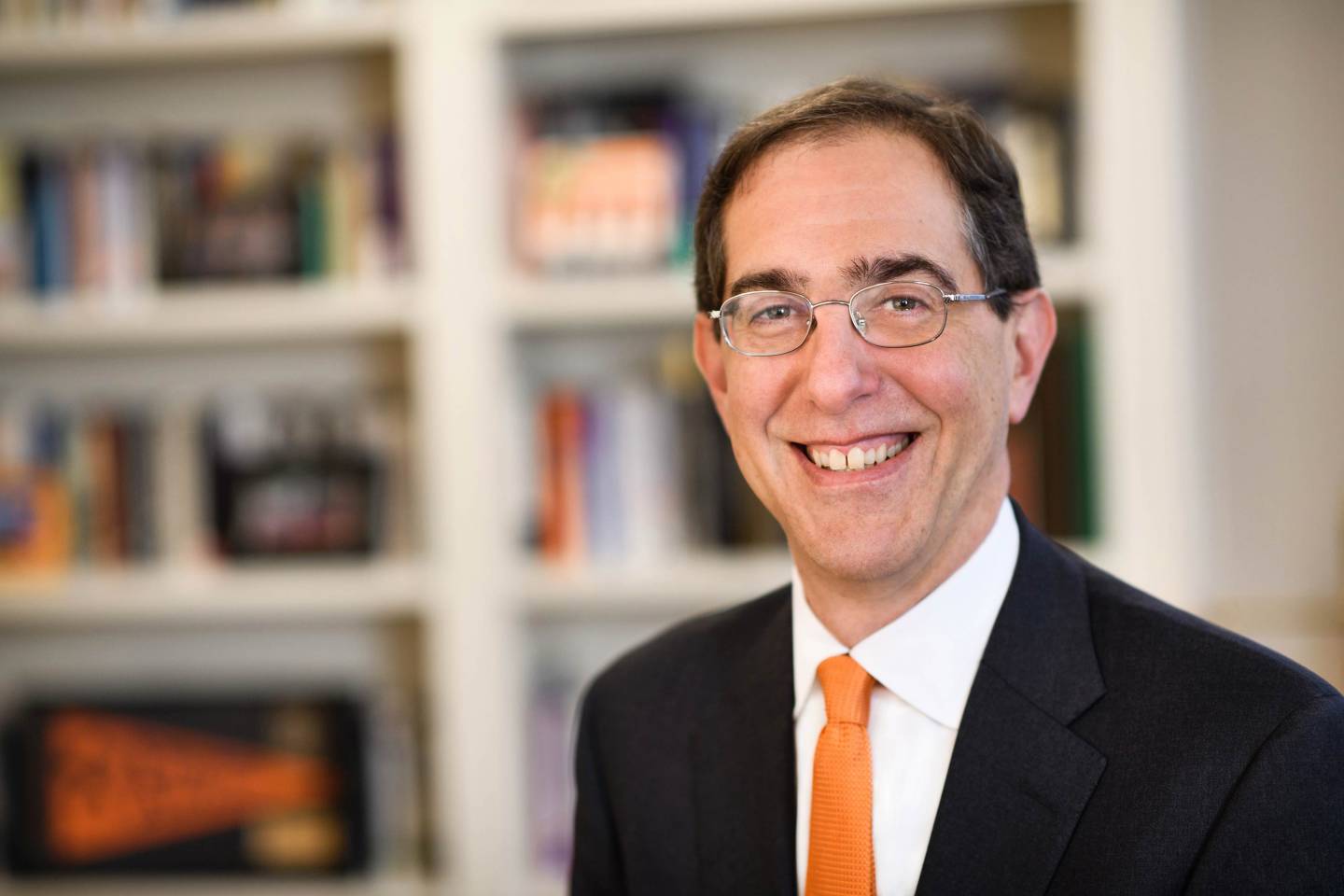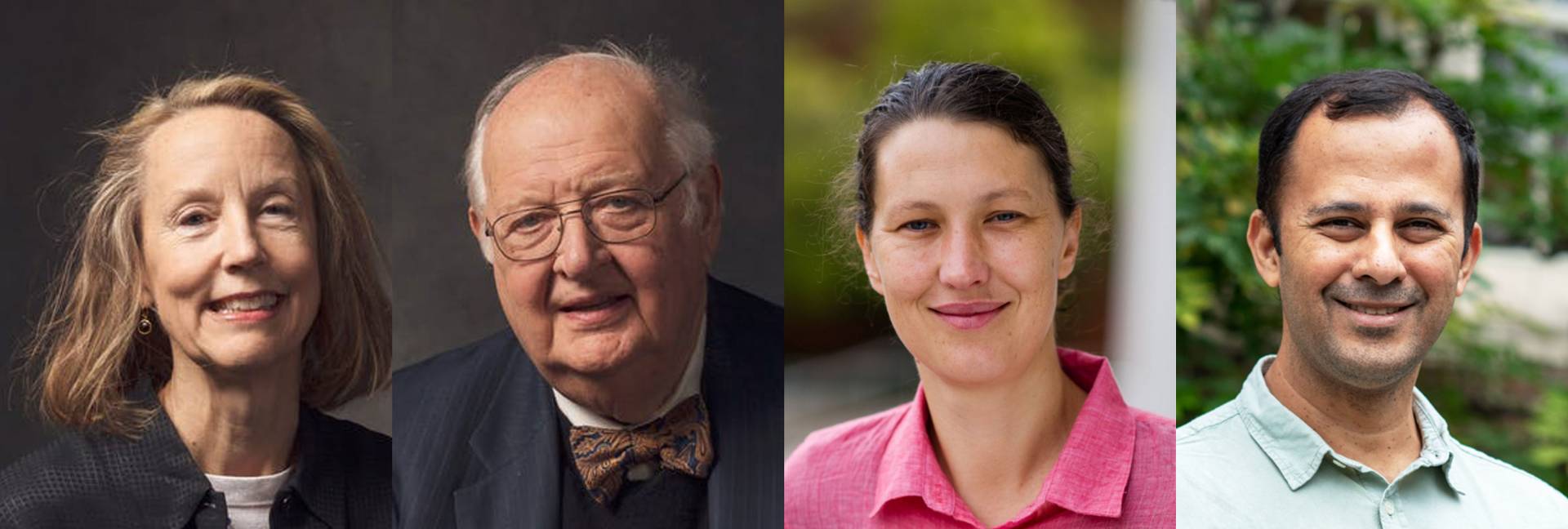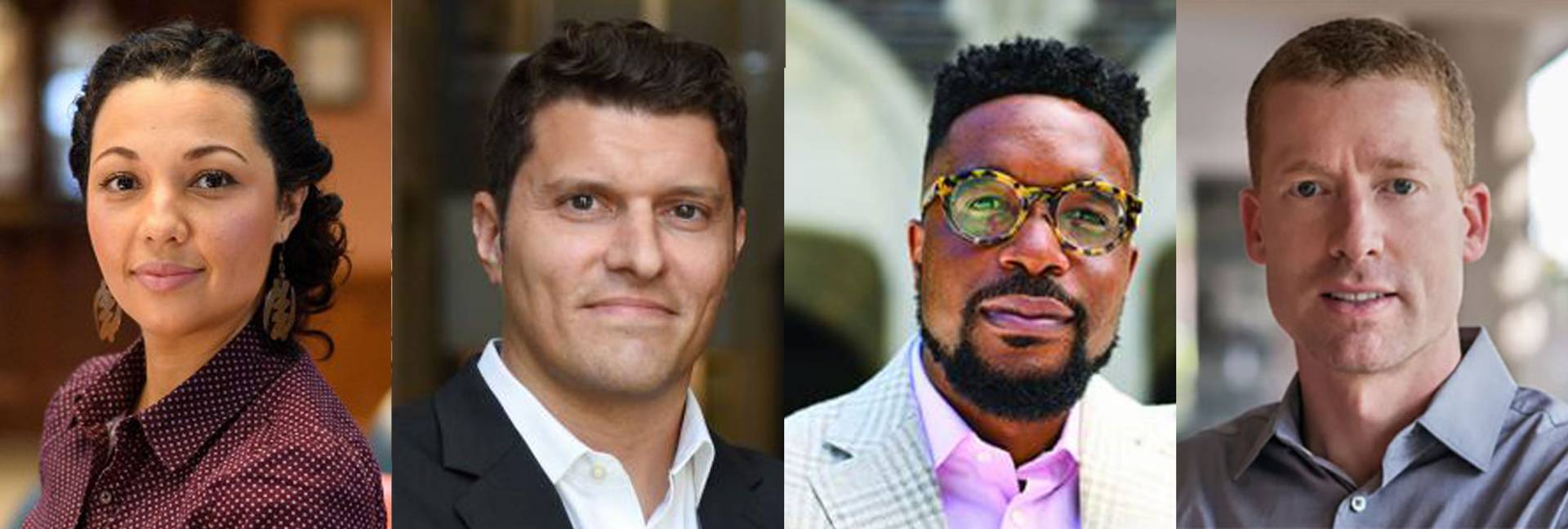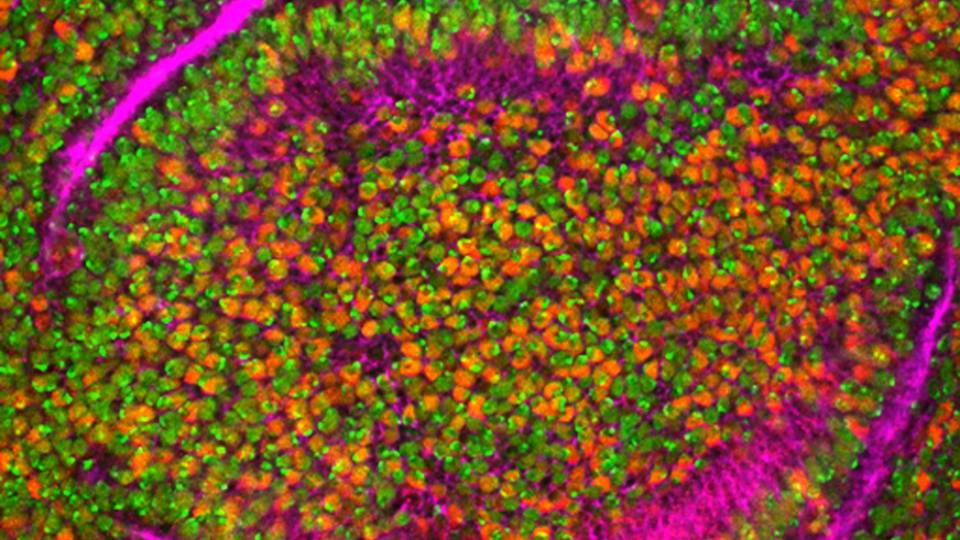Forward Fest is a virtual public conversation series that aims to spark dialogue across the global Princeton community — students, faculty, staff, alumni and other interested thinkers — to engage with and explore big ideas and their infinite possibilities for shaping the future. The first Forward Fest takes place Oct. 23-24 and will focus on public health, justice and the 2020 election.
The first Forward Fest Oct. 23-24 will focus on public health, justice and the 2020 election.
2020 has been a year full of questions. And often, not a lot of answers.
Princeton University’s A Year of Forward Thinking community engagement campaign is celebrating the art of the question — and how the University’s “forward thinkers” are using research, analysis and scholarship to develop bold thinking for the future.
Part of A Year of Forward Thinking, Forward Fest is a virtual public conversation series that aims to spark dialogue across the global Princeton community — students, faculty, staff, alumni and other interested thinkers — to engage with and explore big ideas and their infinite possibilities for shaping the future.

President Christopher L. Eisgruber will greet attendees at the Oct. 23 Welcome Kickoff virtual event of Forward Fest and is looking forward to their engagement during the Q&A sessions.
The first Forward Fest will take place Friday and Saturday, Oct. 23-24, and will focus on public health, justice and the 2020 election. Just a few of the many questions that the event will explore include:
- How have Princeton scholars pivoted their research to address the challenges of COVID-19?
- In what ways do professors’ scholarship and research impact national conversations and policy around social justice issues?
- What impact will the pandemic and other uncertainties have on voter turnout for the upcoming election?
Forward Fest events are free and open to the public. All programming will be livestreamed on the Forward Fest website and on the University's YouTube channel. Registration is not required, but attendees can RSVP to event updates. Attendees can also download a resource guide, which includes information about the featured speakers with links to books, articles, podcasts and more. Captioning will be available for all sessions. After the event, all programming will be viewable on the University’s YouTube channel.
A lively Q&A is planned for each session. Attendees can engage in Q&A by emailing questions in advance to forwardfest@princeton.edu or in real-time in the chat on YouTube.
President Christopher L. Eisgruber, who will speak during the Oct. 23 Welcome Kickoff event, said he is looking forward to the Q&A portions of Forward Fest, sharing this message with attendees: “I very much hope that you will lend your voice to those conversations and participate actively in them. Because one thing we know is that conversations are better when we include participants from a diverse variety of backgrounds and with a wide range of perspectives,” he said.
Following are programming highlights (all times are Eastern daylight time):
Friday, October 23

Speakers during the Oct. 23 Welcome Kickoff virtual event include Andrea Goldsmith (left), the dean of the School of Engineering and Applied Science, and the Arthur LeGrand Doty Professor of Electrical Engineering; Provost Debbie Prentice; Rodney Priestley, vice dean for innovation and professor of chemical and biological engineering; and Mónica Ponce de León, dean of the School of Architecture.
Forward Fest Welcome Kickoff
8-9 p.m.
President Christopher L. Eisgruber, Provost Deborah Prentice and other forward thinkers at Princeton will share what is to come in A Year of Forward Thinking and how participants can engage in myriad topics, ranging from bioengineering to the humanities and creative expression, and public health to social justice. Other voices animating this kickoff event include:
- Andrea Goldsmith, dean of the School of Engineering and Applied Science, and the Arthur LeGrand Doty Professor of Electrical Engineering
- Mónica Ponce de León, dean of the School of Architecture
- Rodney Priestley, vice dean for innovation and professor of chemical and biological engineering
Saturday, October 24

Speakers during the Oct. 24 Thinking Forward Public Health virtual event include Anne Case (left), the Alexander Stewart 1886 Professor of Economics and Public Affairs, Emeritus; Sir Angus Deaton, the Dwight D. Eisenhower Professor of International Affairs, Emeritus, professor of economic and international affairs, emeritus, and 2015 Nobel Laureate; C. Jessica Metcalf, associate professor of ecology and evolutionary biology and public affairs, and co-director of the Program in Global Health and Health Policy; and Ramanan Laxminaravan, senior research scholar in the Princeton Environmental Institute.
Thinking Forward Public Health
1-2:15 p.m.
As our world has been turned upside down by the coronavirus, professors across a variety of academic disciplines talk about how their research and approaches have pivoted to address this challenge to humanity and what the next steps will be in their disciplines.
- Sir Angus Deaton, the Dwight D. Eisenhower Professor of International Affairs, Emeritus; professor of economics and international affairs, emeritus; 2015 Nobel Laureate; and a 1983 Princeton graduate alumnus; and Anne Case, the Alexander Stewart 1886 Professor of Economics and Public Affairs, Emeritus, and a 1983 Princeton graduate alumnus. Potential links between health outcomes of COVID-19 and the opioid epidemic.
- Ramanan Laxminarayan, senior research scholar in the Princeton Environmental Institute. COVID-19 in the international context and environment/public health interactions.
- C. Jessica Metcalf, associate professor of ecology and evolutionary biology and public affairs, and co-director of the Program in Global Health and Health Policy. COVID-19 antibody research, virus pathology and testing.

Speakers during the Oct. 24 Thinking Forward Justice virtual event include Aisha Belisio-de Jesús, professor of American studies, director of the Program in American Studies, the Program in Asian American Studies and the Program in Latino studies, and co-director of the Center on Transnational Policing at Princeton; Jonathan Mummolo, assistant professor of politics and public affairs; Laurence Ralph, professor of anthropology and co-director of the Center on Transnational Policing; and Patrick Sharkey, professor of sociology and public affairs.
Thinking Forward Justice
3-4:15 p.m.
Princeton faculty across disciplines discuss the varied approaches they are using to analyze, understand and critique policies that play a central role in debates about social justice today.
- Aisha Beliso-De Jesús, professor of American studies; director of the Program in American Studies, Program in Asian American Studies and Program in Latino Studies; and co-director of the Center on Transnational Policing at Princeton. Ethnographic, human-centered techniques for understanding societal realities.
- Jonathan Mummolo, assistant professor of politics and public affairs. Data analysis methods for parsing causation and correlation in policing.
- Laurence Ralph, professor of anthropology and co-director of the Center on Transnational Policing. Humanistic approaches for analyzing and communicating social inequalities.
- Patrick Sharkey, professor of sociology and public affairs. Evidence supporting community-based solutions to violence and crime.

Speakers during the Oct. 24 virtual event Thinking Forward to Election 2020 include Andrew Appel, the Eugene Higgins Professor of Computer Science; Heather Howard, director of the State Health and Value Strategies Program and lecturer in the School of Public and International Affairs; Kevin Kruse, professor of history; and Jacob Shapiro, professor of politics and international affairs.
Thinking Forward to Election 2020
5-6:15 p.m.
In a year when the American electorate is questioning the legitimacy and efficacy of the very process of selecting the president and other officials, four Princeton professors talk about approaches to understanding and addressing some of the nuts-and-bolts issues of the 2020 election.
- Andrew Appel, the Eugene Higgins Professor of Computer Science and a member of the Class of 1981. Approaches to addressing voting tampering and security.
- Heather Howard, director of the State Health and Value Strategies Program, Princeton School of Public and International Affairs, and lecturer in the School of Public and International Affairs. Implications of state responses to COVID-19 on voter turnout and/or apathy.
- Kevin Kruse, professor of history. Historical and current day appetite for reform of the electoral college, voting rights and Congressional rules such as the filibuster.
- Jacob Shapiro, professor of politics and international affairs. Techniques for identifying and managing online misinformation and voting interference.
Forward Fest will continue throughout A Year of Forward Thinking, Oct. 2020-June 2021, with the November installment focusing on data science and artificial intelligence.
Learn more about A Year of Forward Thinking and Forward Fest on the website. Watch a video about A Year of Forward Thinking. Engage on social media with the hashtags #PrincetonForward #ForwardThinkers and #ForwardFest, and follow Princeton University and Princeton Alumni on Twitter, Instagram and Facebook.







